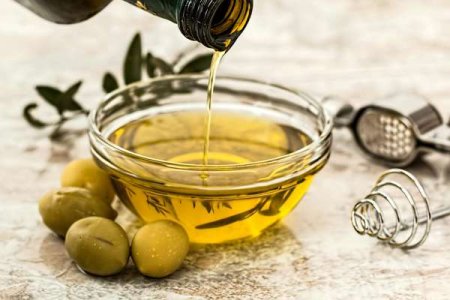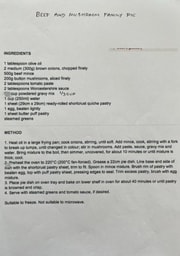Olive Oil Prices Surge–Discover Affordable Alternatives to Keep Your Cooking Game Strong!
By
Ash.S
- Replies 13
In the current economic climate, many Australians are feeling the pinch, and the rising cost of everyday items is a concern for all, particularly for those in the SDC community who are managing on fixed incomes.
Olive oil, a staple in many kitchens, has not been immune to these price hikes. With some supermarkets charging up to $65 for a four-litre tin and $26 for a 750-millilitre bottle, it's no wonder that many are seeking more budget-friendly alternatives.
Olive oil has long been lauded for its health benefits, including its potential to reduce the risk of type 2 diabetes and improve heart health through better blood pressure, inflammation, and cholesterol levels. This is largely due to its high content of monounsaturated fatty acids and polyphenols, which are powerful antioxidants. The recommended daily intake to reap these benefits is around 20 grams, or approximately five teaspoons.
But why has olive oil become so expensive? A combination of a European heatwave and drought has severely impacted the ability of Spanish and Italian producers to supply olive oil to international markets, including Australia. This, coupled with a shorter and colder growing season for Australian olive oil suppliers, has led to a decrease in production and supply, while demand remains high, resulting in increased prices.
If you're fortunate enough to have a stock of olive oil, there are ways to make it last longer:
- Proper storage is key; keep your oil in a cool, dark place with the lid tightly sealed to extend its shelf life to 12–18 months.
- Consider using a spray bottle to distribute the oil more evenly and economically.
- If you've used olive oil for frying, don't discard it – strain and reuse it for other fried dishes, or freeze it for later use, though it's best to use fresh oil for dressings.
But what if you've run out of olive oil? Fear not, as there are several healthy and more affordable alternatives:
- Canola oil is a suitable substitute for frying and is high in monounsaturated fats, similar to olive oil. It's also low in saturated fat, which is a plus for heart health. Prices can be as low as $3 for a 750-millilitre bottle of home brand canola oil.
- Sunflower oil is another excellent choice for salads and frying, with a mild flavour that won't overpower your dishes. It may also contribute to a healthier heart by managing cholesterol levels. Expect to pay up to $6.50 for a 750-millilitre bottle, with home brand options available at a lower cost.
- Sesame oil, with its distinctive nutty flavour, is perfect for Asian dressings and frying. Light sesame oil is a neutral cooking oil, while toasted sesame oil adds flavour to sauces. It's high in antioxidants and has anti-inflammatory properties. Sesame oil typically comes in smaller bottles, with prices up to $5 for a 150-millilitre bottle.
In addition to these alternatives, there are ways to reduce your overall oil consumption. For baking, consider using apple sauce, Greek yoghurt, or mashed banana as substitutes. Non-stick cookware can reduce or eliminate the need for oil in cooking. Steaming, baking, roasting, grilling, and using stock or natural moisture from ingredients like tomatoes and onions are all methods that can help you cook with less oil. For added flavour without the oil, turn to vinegar or citrus juices.
Remember, while olive oil is a wonderful ingredient, it's not the only option for healthy cooking. By exploring these alternatives and adjusting your cooking methods, you can continue to create delicious and nutritious meals without breaking the bank.

We'd love to hear from you, our savvy Seniors Discount Club members! Have you found any other cost-effective substitutes for olive oil in your cooking? Share your tips and tricks in the comments below, and let's help each other navigate these challenging times with our culinary creativity intact.
Olive oil, a staple in many kitchens, has not been immune to these price hikes. With some supermarkets charging up to $65 for a four-litre tin and $26 for a 750-millilitre bottle, it's no wonder that many are seeking more budget-friendly alternatives.
Olive oil has long been lauded for its health benefits, including its potential to reduce the risk of type 2 diabetes and improve heart health through better blood pressure, inflammation, and cholesterol levels. This is largely due to its high content of monounsaturated fatty acids and polyphenols, which are powerful antioxidants. The recommended daily intake to reap these benefits is around 20 grams, or approximately five teaspoons.
But why has olive oil become so expensive? A combination of a European heatwave and drought has severely impacted the ability of Spanish and Italian producers to supply olive oil to international markets, including Australia. This, coupled with a shorter and colder growing season for Australian olive oil suppliers, has led to a decrease in production and supply, while demand remains high, resulting in increased prices.
If you're fortunate enough to have a stock of olive oil, there are ways to make it last longer:
- Proper storage is key; keep your oil in a cool, dark place with the lid tightly sealed to extend its shelf life to 12–18 months.
- Consider using a spray bottle to distribute the oil more evenly and economically.
- If you've used olive oil for frying, don't discard it – strain and reuse it for other fried dishes, or freeze it for later use, though it's best to use fresh oil for dressings.
But what if you've run out of olive oil? Fear not, as there are several healthy and more affordable alternatives:
- Canola oil is a suitable substitute for frying and is high in monounsaturated fats, similar to olive oil. It's also low in saturated fat, which is a plus for heart health. Prices can be as low as $3 for a 750-millilitre bottle of home brand canola oil.
- Sunflower oil is another excellent choice for salads and frying, with a mild flavour that won't overpower your dishes. It may also contribute to a healthier heart by managing cholesterol levels. Expect to pay up to $6.50 for a 750-millilitre bottle, with home brand options available at a lower cost.
- Sesame oil, with its distinctive nutty flavour, is perfect for Asian dressings and frying. Light sesame oil is a neutral cooking oil, while toasted sesame oil adds flavour to sauces. It's high in antioxidants and has anti-inflammatory properties. Sesame oil typically comes in smaller bottles, with prices up to $5 for a 150-millilitre bottle.
In addition to these alternatives, there are ways to reduce your overall oil consumption. For baking, consider using apple sauce, Greek yoghurt, or mashed banana as substitutes. Non-stick cookware can reduce or eliminate the need for oil in cooking. Steaming, baking, roasting, grilling, and using stock or natural moisture from ingredients like tomatoes and onions are all methods that can help you cook with less oil. For added flavour without the oil, turn to vinegar or citrus juices.
Remember, while olive oil is a wonderful ingredient, it's not the only option for healthy cooking. By exploring these alternatives and adjusting your cooking methods, you can continue to create delicious and nutritious meals without breaking the bank.
Key Takeaways
- Olive oil prices have risen significantly, with major supermarkets selling a four-litre tin for up to $65 and a 750-millilitre bottle for up to $26.
- A European heatwave and drought along with a short growing season for Australian olive oil suppliers have led to limited supply and increased prices.
- Alternatives to olive oil include canola oil, sunflower oil, and sesame oil, which can be cheaper and still offer health benefits.
- Tips to use less oil in cooking include using non-stick cookware, steaming, baking, grilling, using stock, vinegar, or citrus, and relying on the natural moisture of ingredients.
We'd love to hear from you, our savvy Seniors Discount Club members! Have you found any other cost-effective substitutes for olive oil in your cooking? Share your tips and tricks in the comments below, and let's help each other navigate these challenging times with our culinary creativity intact.








